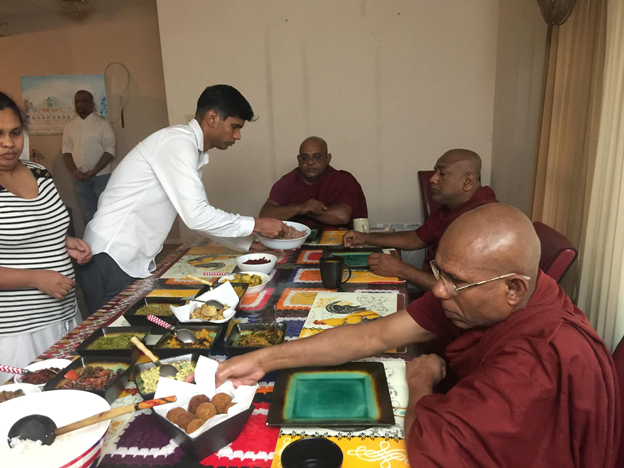Celebrating Dhamma Day (Asalha Puja)
Asalha Puja, also known as Dhamma Day, is a Buddhist festival that takes place on the full moon of July (according to the Buddhist calendar, the month of Āsādha). Not all Buddhist traditions celebrate Dhamma Day. Only countries belonging to the Theravada tradition celebrate Dhamma Day.
Most Theravada Buddhist countries such as Indonesia, Cambodia, Thailand, Laos, and Myanmar celebrate this festival. Sri Lanka, even though it is a Theravada country, is not directly celebrating this festival. Instead, it celebrates another important festival on this same day, which is the starting day of three months rain retreat for the monks.
What is Dhamma Day?
Dhamma Day is one of the most important festivals of Theravada Buddhism. It celebrates the day on which the Lord Buddha delivered his first dhamma sermon to his first five followers. This particular dhamma sermon is called the “setting into motion of the wheel of dhamma.”
The four noble truths are the main subject of this sermon.
- There is suffering (in the world and life).
- Suffering is caused by desire and ignorance.
- Through attaining Nirvana, there is an escape from suffering.
- The way that leads to freedom from suffering.

Dhamma Day is significant because one of the followers truly understood the teachings of Lord Buddha. If no one understood the first sermon delivered by the Lord Buddha on that day, Buddhahood would never be completed. To be a Samma Sambuddha, someone else must understand and realize what the Lord Buddha realized, after following the instructions given by the Lord Buddha. Therefore, it is a very important day for all Buddhists around the world.
The Significance of Dhamma Day
This special day is celebrated by offerings alms to monks and listening to dhamma sermons. This day is very special to the Buddhists as the Lord Buddha discovered the four noble truths with very intense practice and immense sacrifices that no one ever went through. He had been torturing himself for six continuous years, which was common practice among spiritual leaders during that time. Later, he realized that torturing oneself is not an escape from suffering, that will only lead to more suffering. Lord Buddha finally discovered the middle path (the Noble Eightfold path, 8 core practices, and morals). The Noble Eightfold Path allows for a peaceful mind, free from the suffering a normal person experiences. The Buddhists around the world pay their gratitude to the Lord Buddha for his dedication and commitment on this day.
The eight practices of the Noble Eightfold Path are the right view, right resolve, right speech, right conduct, right livelihood, right effort, right mindfulness, and right concentration.

The Vassa
The Vassa (meaning “rain”) is the three-month annual retreat observed by the Buddhist monks of the Theravada tradition, coming one day after Dhamma Day. This retreat starts in July and goes until October each year. The Vassa runs through the time of the Lord Buddha. It was a standard practice among ascetics in India not to travel during the rainy season. This is because they may unintentionally harm crops, insects, or even themselves while traveling.
During the Vassa, Buddhist monks remain in one place and practice dhamma intensively. The laymen take care of the necessities during these three months. The monks give advice to laymen on how to manage their responsibilities in a more sustainable and peaceful manner. In return, laymen help with the monks with necessities such as food, medications, and other necessary items to help with their spiritual journey.
The Kathina Festival
The Kathina Festival follows the Vassa. This festival represents the expression of gratitude of laymen to monks. Lay Buddhists bring alms to temples during the rainy season, and new robes for the monks at the end of the festival. Theravada Buddhists consider taking part in this special occasion as one of the most important things that a person can do in his/her lifetime.



Preparing the temple for the Katina ceremony (Source: DFW Vihara, Texas)
Recommended for you:
- Eid al-Fitr: Festival of Breaking the Fast and Giving Back
- 3 Tips to Maximize Easter Giving
- Giving: A Passover Tradition



